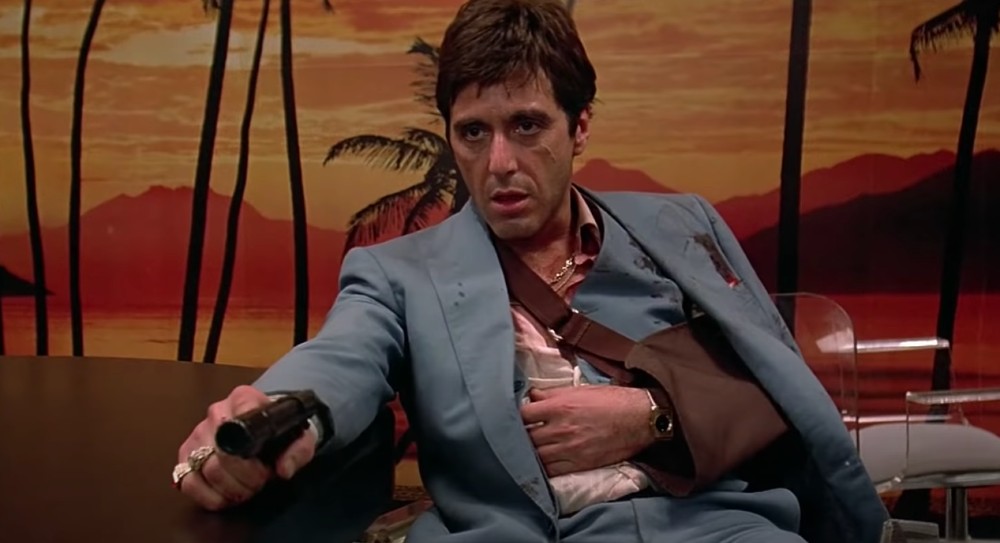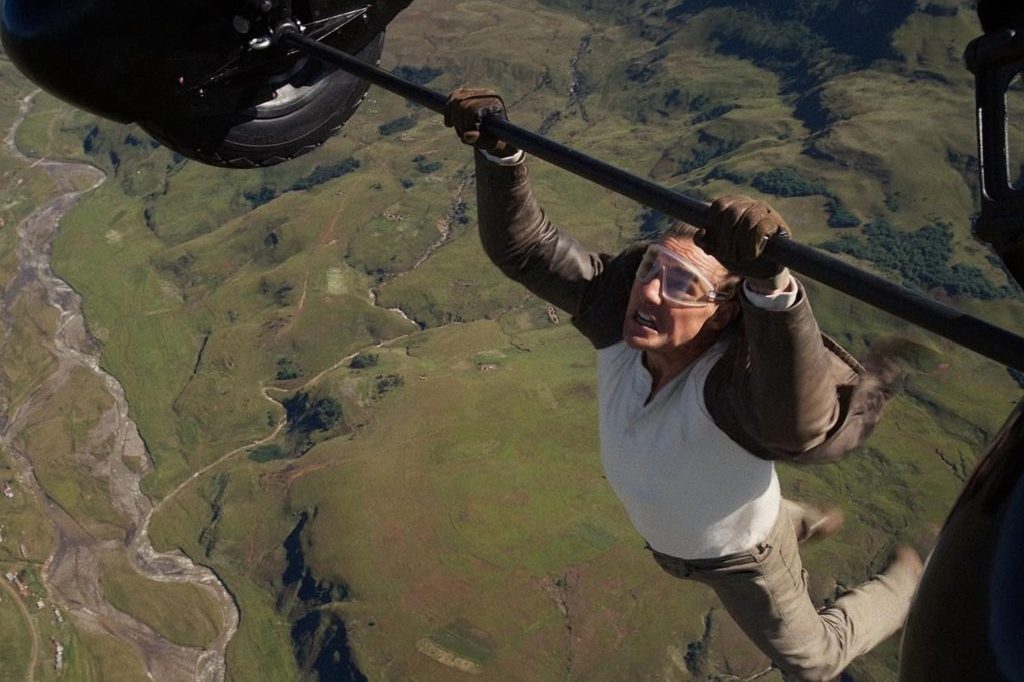“I always tell the truth — even when I lie,” says Tony Montana in Brian DePalma’s 1983 cult classic gangster film Scarface, which on September 1 became available for streaming on Netflix. The line resonates well in a post-truth world.
In the film’s climactic scene, Tony, the drug kingpin played by Al Pacino, has just started his slide to rock bottom. His wife, Elvira, played by a young and then-unknown Michelle Pfeiffer, has publicly dumped him in an embarrassing scene at a high-end restaurant as well-manicured bourgeois types look on aghast. His erstwhile business partner in the drug trade is closing in after Tony failed to dispose of a troublesome investigative journalist. The feds are not far behind, having gathered videotaped evidence of money laundering and tax evasion certain to send him to prison.
Aware that his end is near, Tony proceeds to tell off his impromptu audience of gawking restaurant patrons with near-Shakespearean self-awareness, courtesy of Oliver Stone’s screenwriting long before he became a deranged Putin apologist. “You don’t have the guts to be what you want to be,” Tony declaims. “You need people like me so you can point your fucking fingers and say ‘that’s the bad guy.’” Casting that proverbial stone doesn’t make them good, Tony informs them, it just makes them able to hide and lie. In a world of hypocrisy, all that’s left for him to do is retreat to his decadent mansion and await an army of assassins, who take him down in arguably the bloodiest shoot-out in the history of film.
Loosely based on Howard Hawks’s 1932 film of the same name, which itself loosely followed a novel based on the nefarious career of Al Capone, Scarface relocates the setting to Miami in the early 1980s. Its anti-hero is not an Italian immigrant but a Cuban refugee from the Mariel boatlift, in which Fidel Castro’s regime released some criminals along with a much larger population who had relatives among the Cuban exile community in the United States.
Awash in sex, drugs, blood, misogyny, and profanity — the F-bomb is dropped 226 times according to one count — Scarface practically called out for censure even before woke sensibilities plagued our ailing civilization. Prior to its release, the Motion Picture Association of America gave it an “X” rating, the classification used for pornography, only softening to the adult “R” after DePalma edited it three times. A chainsaw murder early in the film reportedly caused the novelists Kurt Vonnegut and John Irving to walk out of the premiere. The Cuban-American community objected to ethnic stereotypes so strenuously that the city of Miami refused filming permits, forcing much of it to be done in Los Angeles. Then, as now, people objected that the principal roles are, with only one exception, played by non-Cubans and non-Latinos. Pacino’s severely overdone Cuban accent makes Ricky Ricardo sound like George Plimpton.
In the four decades since the film’s premiere, its tropes of sexualized violence have suffused all subsequent gangster media, along with organized crime, gang culture, hip-hop, video games, and the vocabulary of anyone who has ever borrowed Tony’s most famous line, “Say hello to my little friend,” now a cliché to refer to some helpful item that is invariably far less impressive than the character’s home-defense grenade launcher. Saddam Hussein named his own money laundering operation “Montana Management,” after a front business Tony sets up in the film to conceal his drug profits.
It may seem a paradox that now, in our immeasurably more sensitive times, Netflix has added Scarface to its offerings without any of the disclaimers that competing streaming services like HBO Max and Disney have added to Gone With the Wind and The Muppet Show. The decision follows Netflix’s commissioning of a comedy special by Dave Chappelle, which was criticized for “offensive” and “harmful” content, both publicly and within the company, because the comedian had the temerity to defend Harry Potter author J.K. Rowling for being insensitive to the transgendered.
Scarface also arrives on Netflix only a few months after the company fired 290 employees, many of whom were hired to create and steward content that would promote diversity and wokeness. Those who were spared received a curt memo telling them that “you may need to work on titles you perceive to be harmful. …If you’d find it hard to support our content breadth, Netflix may not be the best place for you.” The company then proceeded to cancel several woke projects in development. They included Meghan Markle’s ill-fated cartoon series featuring a socially conscious young woman of color based, predictably, on herself — part of a rumored $120 million bath the company has taken on content from the empty-headed and perpetually annoying Sussexes. Two planned animated series based on the works of noted racist and MacArthur “genius” fellow Ibram X. Kendi also got a well deserved ax (or was it a chainsaw)?
So why has Netflix, once as progressive a media outlet as any, migrated to the counterrevolutionary right? The answer appears to lie in its suffering bottom line. After years of griping among subscribers about its mediocre content, political preachiness, and rising subscription fees, the company has become a textbook case of the new aphorism “go woke and go broke.” After hitting an all-time high of $690.31 in October 2021, its share price is now down to $234.55, with some $70 billion in market capitalization disappearing since January 1. Defying projections that the service would add 2.5 million paying subscribers in 2022, it instead lost 1.5 million in the first two quarters of 2022 alone.
The Australian comedienne Hannah Gadsby, who has released two specials via Netflix, turned on the service over the Chappelle controversy, deriding the company that promoted her work on an international platform as an “amoral algorithm cult.” Tony Montana might reply to her that in America, “when you get the money, you get the power. Then when you get the power, you get the women.” For the moment, however, Netflix subscribers are getting better content, along with a healthy dose of toxic masculinity.
Paul du Quenoy is president of the Palm Beach Freedom Institute

























